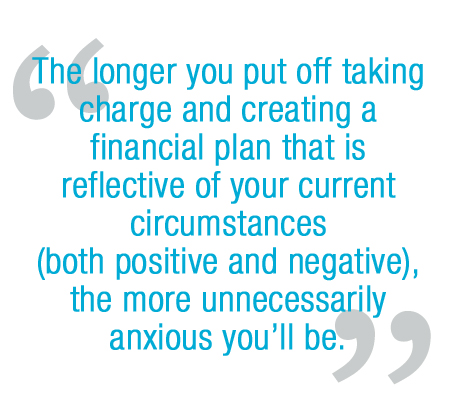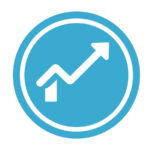By Karin Mizgala, co-founder and CEO Money Coaches Canada
 COVID-19 has rattled us to the core. It has threatened our health and taken lives. It has damaged our economy and taken livelihoods. It has physically kept us apart, yet we have pulled together. When this is over we won’t be the same. But maybe we can be better.
COVID-19 has rattled us to the core. It has threatened our health and taken lives. It has damaged our economy and taken livelihoods. It has physically kept us apart, yet we have pulled together. When this is over we won’t be the same. But maybe we can be better.
I recently took the BC disease centre survey which, along with the expected medical questions, also asked some excellent and surprising qualitative questions. The one that stood out for me was; state two things that were positive and two things that were negative about COVID-19 pandemic time.
My teacher cousin thought that there should have been a children’s version of the survey and took it upon herself to ask her grandchildren some of the questions. When she asked her young grandson what was positive about the COVID-19 situation, he didn’t give the more screen time, less school time answer you might expect from an eight year-old, instead he said, “It was very good for the environment and it will be very good for us to learn more things for future pandemics.” (Eight year-olds are more informed than in my day!)
While I in no way want to diminish the negative, even tragic, impact of the pandemic, my young cousin reminded me that we are all (even eight year-olds) being asked to stop and reflect on deeper life issues.
We created an Estate Planning Checklist. If you would like a copy, we offer it as a free download.
How Much Is Enough?
The pandemic has turned a spotlight on our relationship with money. Even if you’re still employed or retired with money in the bank, you are probably experiencing some anxiety about money. The fear usually comes down to – will I have enough. Will I have enough to pay my bills? Will I have enough to retire? Will my investments grow enough? Will I outlive my money?
 But instead of doing something to relieve the financial anxiety, fear may be driving you to do the exact opposite. So you ignore, avoid, and put-off dealing with your money until some future date when everything has “settled” or you have more time to deal with it.
But instead of doing something to relieve the financial anxiety, fear may be driving you to do the exact opposite. So you ignore, avoid, and put-off dealing with your money until some future date when everything has “settled” or you have more time to deal with it.
I hate to say this, but life isn’t going to settle anytime soon and the longer you put off taking charge and creating a financial plan that is reflective of your current circumstances (both positive and negative), the more unnecessarily anxious you’ll be.
What contributes most to the worry is not having enough information about your own personal circumstances: what you need to do and what you can control as far as your money is concerned.
Take the 7 Stages of Financial Well-Being quiz, and we will help you assess your current financial situation and offer guidance toward healthy financial retirement.
A Financial Plan is the Key to Financial Freedom
True financial freedom isn’t as much about the dollars and cents as is it about knowing what’s important to you and aligning the way you make, manage and invest your money with your values, passions and life purpose.
When you plan, you can work through different life and financial scenarios to see where you stand now and in the future and how closely this aligns to your ideal life. If you fail to plan, you run a significant risk of ending up with an outcome that you don’t like and you never expected. By then it’s too late to go back and change the decisions you made along the way.
 If you’re like a lot of Canadians, you may be held back by the common misunderstanding that financial planning is just about budgeting, or that it’s only about investing for retirement. You might believe that financial planning is for anybody but you, that you’re too old, too young, or not wealthy enough or that now isn’t the right time. The fact is; you can always benefit from financial planning, regardless of life stage or situation, including during this time of uncertainty around COVID-19.
If you’re like a lot of Canadians, you may be held back by the common misunderstanding that financial planning is just about budgeting, or that it’s only about investing for retirement. You might believe that financial planning is for anybody but you, that you’re too old, too young, or not wealthy enough or that now isn’t the right time. The fact is; you can always benefit from financial planning, regardless of life stage or situation, including during this time of uncertainty around COVID-19.
A financial plan is a tool with well-defined objectives. It’s a roadmap that helps you define your financial life goals and provides the tools, information and structure necessary to organize your finances and make the most of the money you have.
It can help answer a wide range of questions, both short and long term, including:
- Where does all of my money go each month?
- How do I get ahead financially?
- What do I need to do to retire comfortably?
- Can I manage the expenses of buying a new home?
- How should I manage my money if I’ve recently become widowed or divorced?
- Should I put my money into an RSP’s, TFSA’s or pay down the mortgage?
- What’s the best way to finance my child’s education?
- Do I have enough to create a financial legacy for my children and grandchildren?
- Can I provide additional financial support to the charitable organizations that mean the most to me and my family?
A financial plan will help you answer these questions in an organized, structured manner. By creating a financial plan, you will know the necessary steps to get from where you are now to where you want to be with greater confidence and ease.
A Financial Planner or Money Coach typically provides a written financial plan which outlines your goals, challenges and considerations, recommendations and action plan. A comprehensive written financial plan generally includes the following:
- A clarification of your short, medium and long term goals
- A statement of Net Worth
- An analysis of your cash inflows and outflows
- A detailed budget and debt-reduction strategies
- A review of your current investments and investment strategy advice
- Projections regarding your retirement, including pension recommendations
- A review and recommendations on your insurance needs, group benefits and estate planning
- The action steps needed to implement your plan
Although the planning document is a valuable tool, the real benefit is in the planning process and understanding that financial planning is a lifelong, dynamic process.
Money Coach Steve Bridge received a message from a client couple he developed a financial plan with; that highlights the peace-of-mind that comes from being in control of your money.
 “We have been meaning to send you a quick message of thanks during this COVID-19 pandemic. We are fortunate that we are both still working, but had either or both of us, lost our jobs, we have a solid emergency fund and good sense of budgeting to weather the storm. We also no longer carry debt so it makes these times that much easier. Our investments have lost a bit but we know those are long term and we are still years away from retirement. There is no doubt that your money coaching allowed us to have confidence in our finances during this time.”
“We have been meaning to send you a quick message of thanks during this COVID-19 pandemic. We are fortunate that we are both still working, but had either or both of us, lost our jobs, we have a solid emergency fund and good sense of budgeting to weather the storm. We also no longer carry debt so it makes these times that much easier. Our investments have lost a bit but we know those are long term and we are still years away from retirement. There is no doubt that your money coaching allowed us to have confidence in our finances during this time.”
Read about how we’ve helped people just like you feel empowered and ready for the future.
Start Making Informed Financial Decisions Today
If ever we needed proof that life can change drastically and quickly we have it now. If you found yourself shaken by how swiftly your life changed, this can be a moment to reset or reaffirm your priorities. When you make smart financial decisions, and you have a financial and retirement plan that aligns your money with your values and dreams, you’ve got something amazing.
Now is the time to create a financial and retirement plan that sparks hope and confidence in the future that waits on the other side of this crisis.
Our Investment Report Card is helping Canadians move forward with their investment portfolios with confidence. See how it can help you.





